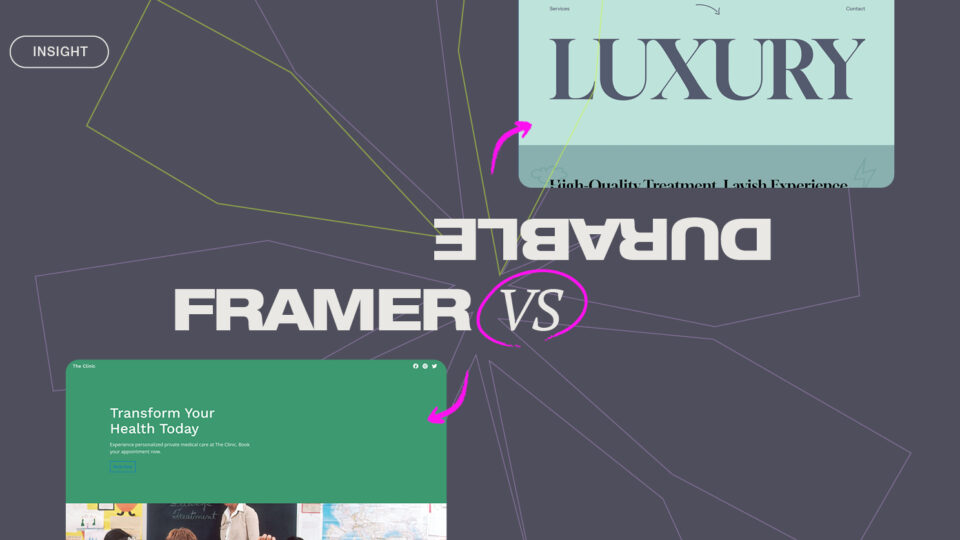
It’s time for us to explore some of the AI website builders that are most commonly used. Find out how they can help marketers, which one performed better or even if it’s time for us to pack up and pivot!
Durable
We’ll start with Durable which states it can create a website in just 30 seconds. And does it work? Yes, it does! But there’s a catch…it looks like this!

You can of course play with fonts, colours, etc but only really if you upgrade to a paid-for package. And for what it’s worth these templates are pretty formulaic. Now, no matter the size of your company, it’s very unlikely you are going to feel that this site communicates a positive image for your brand.
Add to that, that the AI tool has picked up a set of unattributed images from somewhere on the internet, and fabricated a set of fake user reviews, and you might start to get a bit dubious about the tool. You see no matter what, this is basically like a version of WIX or one of the myriad of DIY website builders designed for start-ups.
Oh, and that’s before you learn that you don’t actually own the site for your brand and that if you fail to pay the monthly subscription, you’ll no longer have access to the site.
Framer
Framer is another AI tool for creating a website quickly. Its sales pitch is this: ‘From raw idea to a real page in seconds. The more details you provide, the better the output. Each section has a unique combination of layout, copy and styling. Tweak what you like and delete what you don’t.

Mix and match display fonts, text fonts, and colour palettes to build a theme for your site. Cycle through variations of the theme for each section. Or simply shuffle through unique combinations until you find the perfect one.’
Where this really seems to differ from Durable is in the ability to add more description to what you are looking for. Given this for our money this is the better of the two AI website generation tools, the flexibility is greater and it will build out a site in desktop through to mobile.
You still have the same issues it’s template driven, it’s formulaic the content is everything that needs to change, and you need to pay to really get any benefit etc. But for start-ups or those on a tight budget, it’s an option to explore.
Which one, and is it worth it?
In either case it’s definitely a case of “you get what you pay for” here.
If you want something quick and cheap to get a website online then to a degree either of these are worth looking at, however in 30 years we’ve not met a single client that really wants this type of solution and if they do we tend to walk away.
And given a website is not just about the structure but the content too it’s really not something a credible or established business will want to use over the other options out there.
If you are looking for something cheap and cheerful to get you off the ground then we suggest you ignore Durable and go with Framer. Have a play if you have the time but for most of the people we work with right now it’s a no. But as these are both in their infancy as things progress Framer may well be a viable solution in time for those looking for a quick and cheap website build.
As always we are keen to hear if you have any questions about this post or about how you should be approaching the use of AI for your brand so please do get in touch.
We’re off to make sure the team haven’t started packing. 😉



